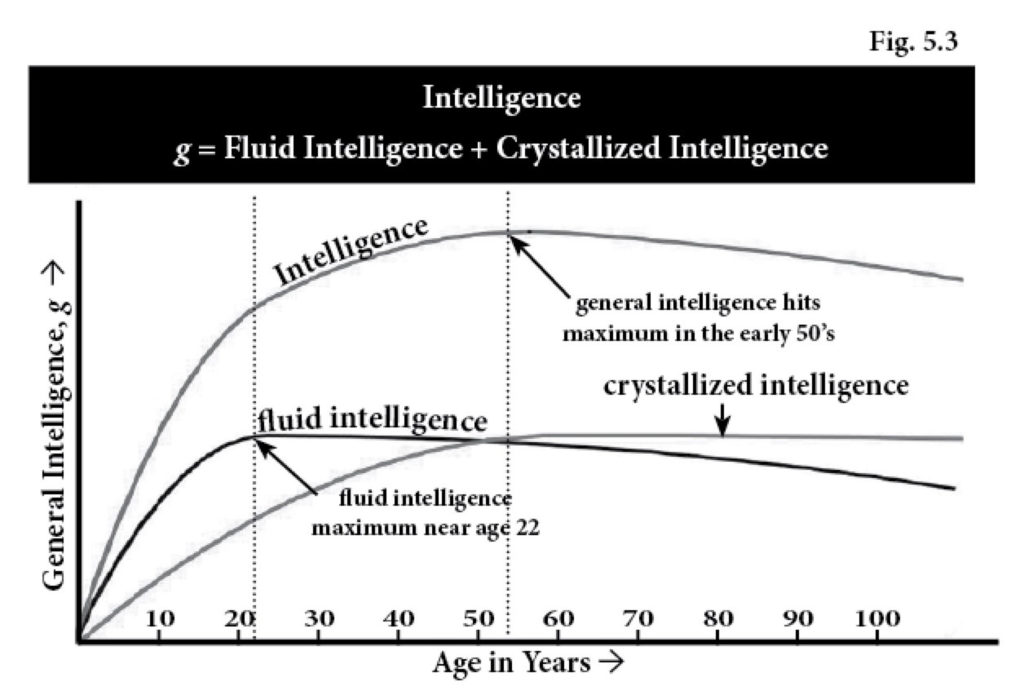
Between birth and early adulthood, the brain passes through significant periods of neural growth and pruning in which new neuronal connections are produced and those not used are pruned. Throughout this development, you might expect that your IQ would remain relatively stable, because IQ is a measure of intelligence relative to others of the same age. However, recent research indicates that while the average IQ of those in the same age cohort is relatively stable over a span of several years, the IQ of an individual can change significantly during this period.
In a longitudinal study, 33 teenagers of average age 14.1 years were administered an IQ test and a structural brain scan in 2004 and then again in 2007, when their average age was 17.7 years. It was found that during this period, the average IQ of the group had changed very little; however about 20% of the participants showed a positive or negative change in IQ of at least 15 points (one standard deviation). Furthermore, magnetic resonance imaging (MRI) revealed that positive changes in IQ corresponded to increased gray matter in sections of the brain associated with those cognitive functions. Summarizing their findings, the researchers reported:*
Our results emphasize the possibility that an individual’s intellectual capacity relative to their peers can decrease or increase in the teenage years. This would be encouraging to those whose intellectual potential may improve, and would be a warning that early achievers may not maintain their potential.
Indeed, during the simultaneous processes of rapid neuron growth and pruning from infancy through adolescence, your brain was in constant flux, changing your personality, your habit of mind and who you are. That’s why the “you” who entered high school is very different from the “you” who graduated university. Your ideas, beliefs, and manner of thinking were changed dramatically by your experiences and intellectual challenges as axons grew and connected neurons, forming a complex network of interconnections. Emerging from adolescence like a butterfly from the pupa, you came fully equipped with an adult brain–a neural network containing your sense of self, your passions, your instinctive behaviors, your beliefs, and your capacity to learn.
Now that we understand the processes of neural growth and pruning, we recognize the importance of exposing students to curricula that are sufficiently challenging to stimulate their intellectual growth. To this end, the curriculum should be matched to the ability of each student. Children who struggle to learn new concepts should be provided with special education that challenges but does not defeat them. Children who are much more capable than average should receive challenging instruction at a level commensurate with their gifts.
In the process of researching and writing the biographies of over 200 of the greatest intellectuals in history, I have discovered that an overwhelming proportion of these brilliant people displayed a high ability in their early years that was nurtured by parents and/or teachers who set high standards. Sir William Rowan Hamilton, John Stuart Mill, and John von Neumann are examples. Inadequate challenge limits growth and excessive challenge can lead to psychological problems. Balance is essential.
Unfortunately, an ideology of egalitarianism has permeated some educational jurisdictions, who refuse to acknowledge that people differ significantly in intelligence and consequently, deny the need for programs for gifted children. (For a current example, see: California Recognizes Giftedness – Intelligence and IQ ) In her book, Extreme Intelligence, psychologist Sonja Falck states, “Educational systems are far readier to make adaptations to cater for individuals who are lagging behind the expected level of achievement than they are to make adaptations for those who are speeding ahead.”**
*Ramsden, Sue. et al. 2011. “Verbal and non-verbal intelligence changes in the teenage brain.” Nature. Vol. 479. pp. 113-116.
**Falck, Sonja. 2020. Extreme Intelligence: Development, Predicaments, Implications. Routledge: London. p. 86.
